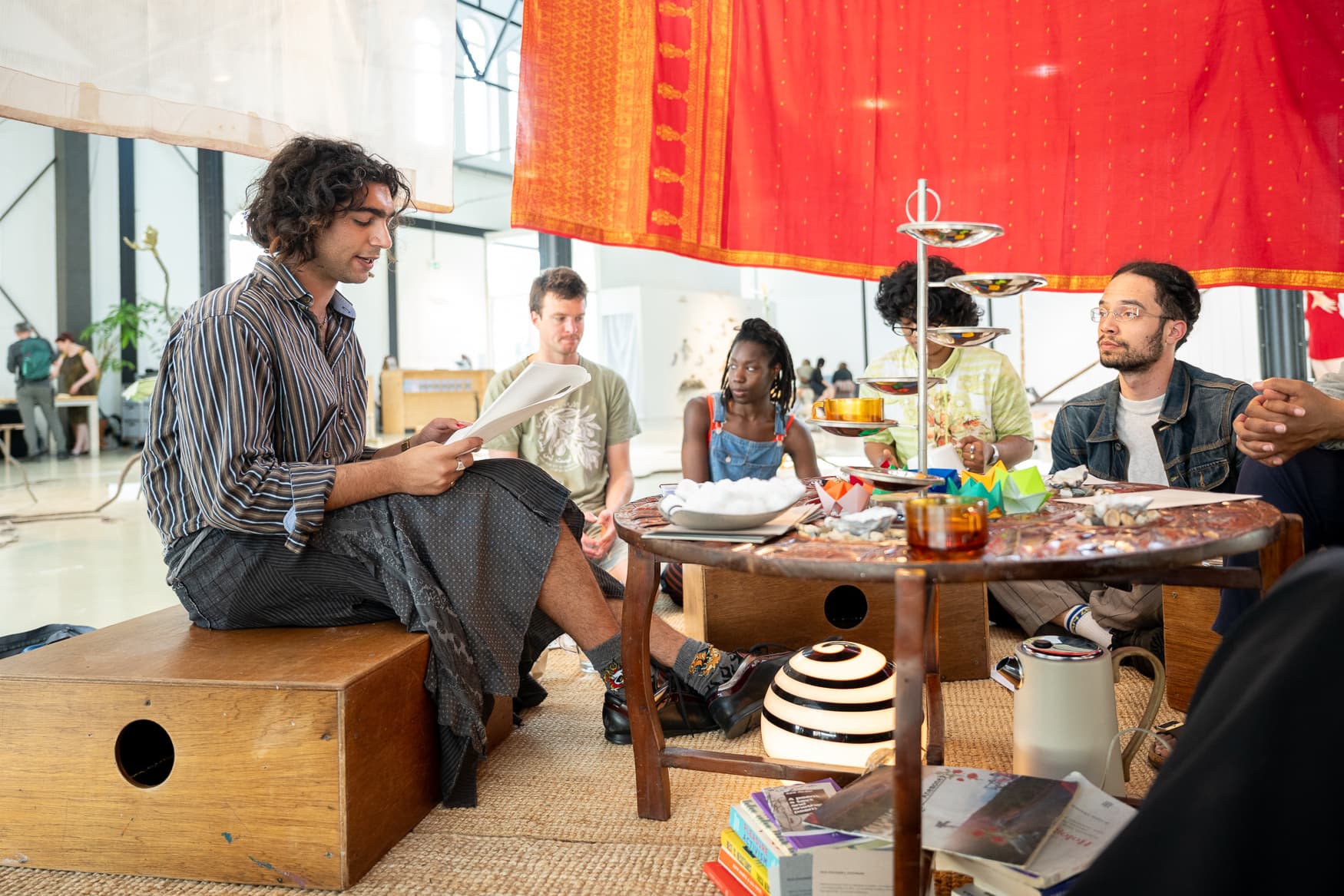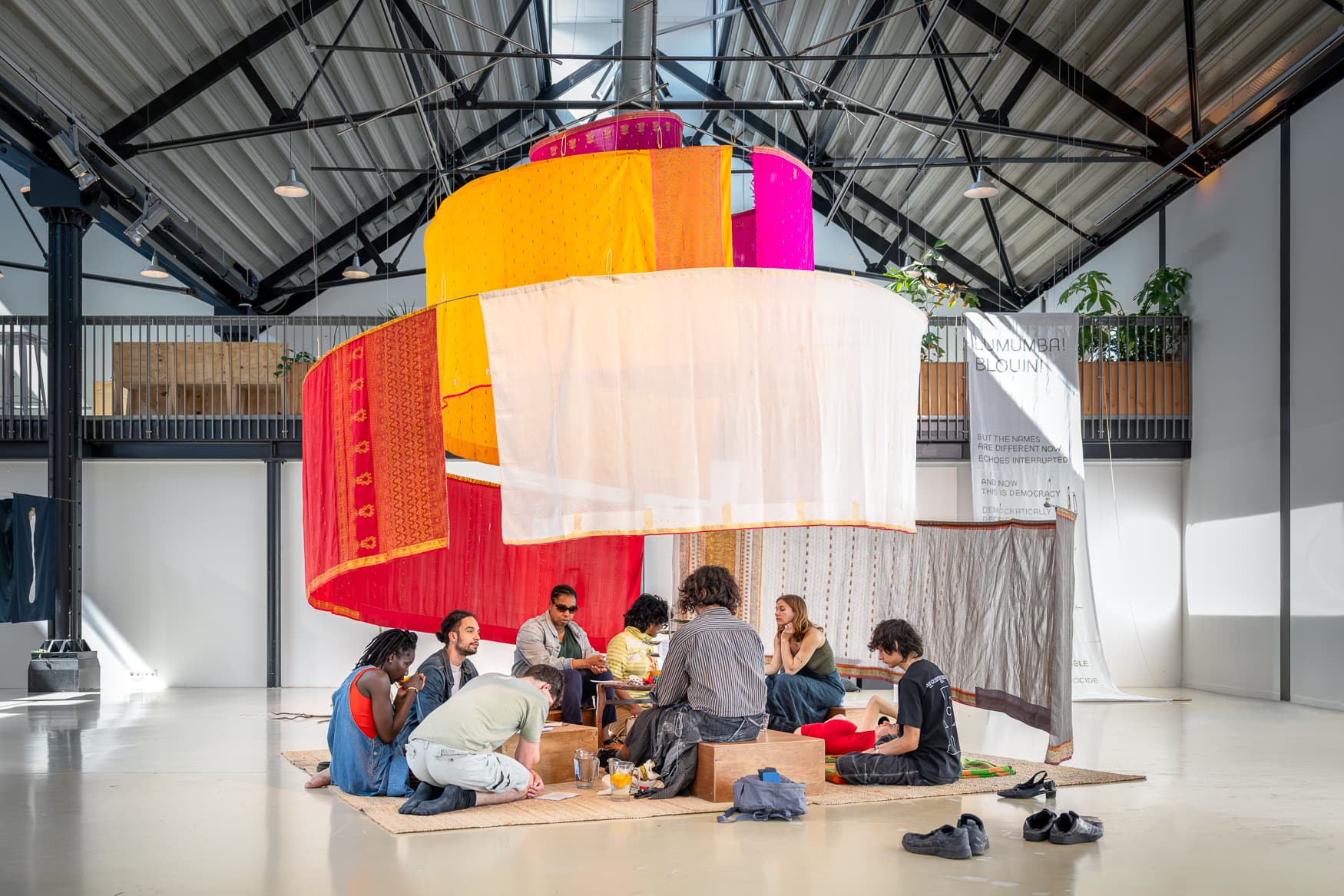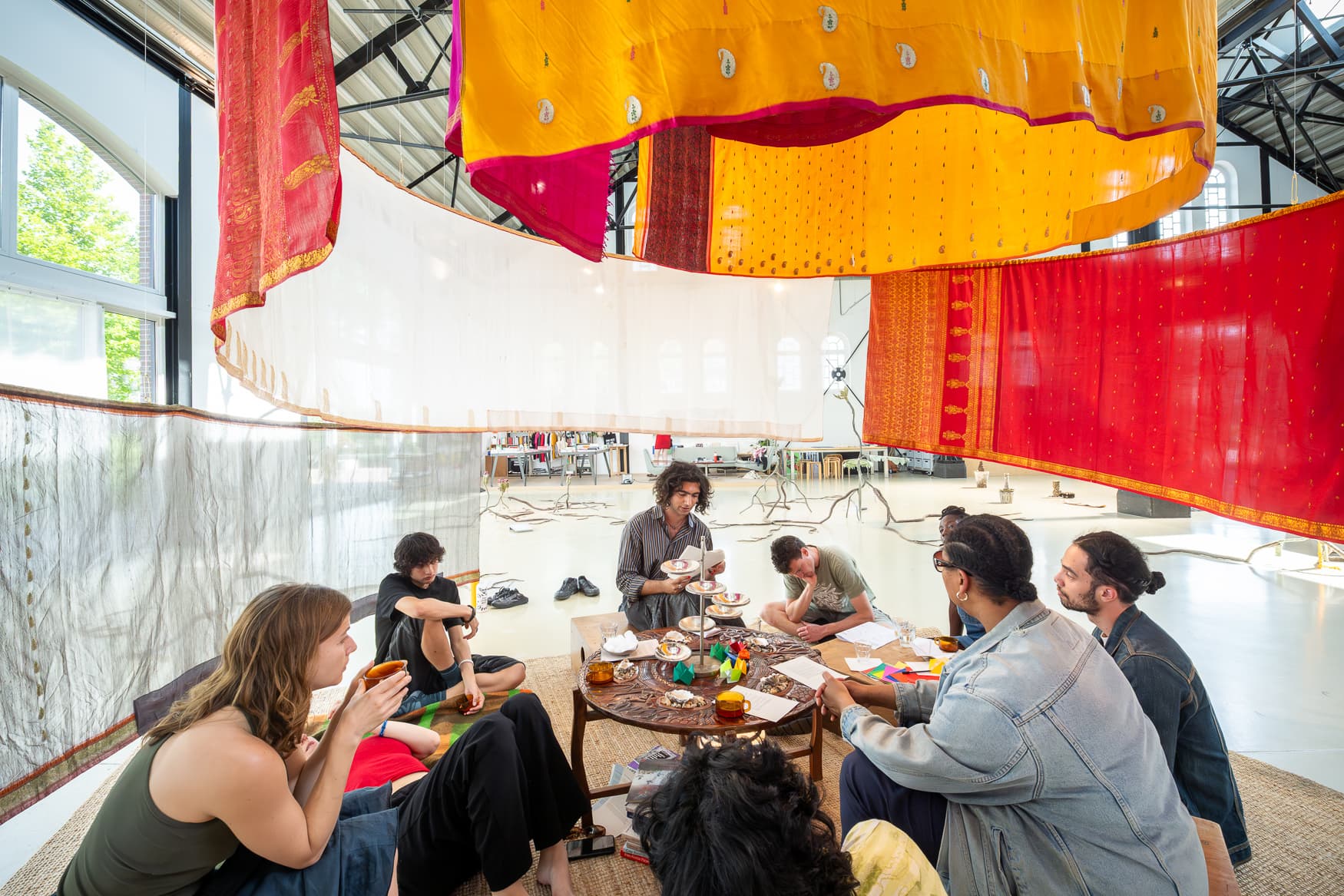eshwari ramsali
Planetary Poetics
Biography
eshwari is a writer, researcher, facilitator, web-tender and pot-stirrer based in amsterdam. they are currently working on themes of more-than-human kinship, mutual aid healing justice and reclaiming lineages of healing that have been obscured and suppressed within the global majority. their graduation work centers place-making, survival as practice and rituals of communion as pivotal to the revolutionary imagination.



How can a body withstand this?
Gesturing towards survival as an ongoingness of presence - as an experiment in imagining otherwise - as a necessary giving in to what is - as a commitment to kinship in all forms - as a discipline of hope against hope - as a practice of showing up. As an artist, researcher, writer, and facilitator interested in the concepts of space and place-making, this work is an experiment in holding space. designed as a physical manifestation of the artist’s vision of a space of connection and intention, the work opens possibilities of an otherwise that feels almost within reach but somehow net yet. The artist combines their developing practice of installation, safe(r) space facilitation, storytelling, performance, mixology, and herbalism to bring together notions of healing justice, land stewardship, mutual aid, grief tending more-than-human kinship, queer & trans rituals of care in this dream-incarnate space. A large installation resembling a 3-dimensional upside-down spiral constructed out of metal hosts 6 saris draped over the structure. The saris are heirlooms inherited by the artist from their mother and grandmother. This interactive installation serves as an opportunity to create a sense of retreat and separation from the larger exhibition hall without leaning into opacity. within this construction lies a sitting room which the artist hosts. At its core, this installation raises a mirror to the popularity of safe and safe(r) spaces in Amsterdam and the violence of uncritical linearity. By essentially building what is to them, a safe(r) space, the artist asks, can a space be at once safe and critical? is safety all we are looking for? and what might then we envision instead? combining Bruno Labour’s theorisation of critical zones and Kristi Clemens and Dr. Brian Arao’s concept of brave space, the artist intends to highlight the vital role of courage in the acknowledgement and subsequent learning about, of the intricate webs of othering we are entangled in. In this space, the artist uses the tools of storytelling and performance as they host a drawn-out tea ceremony using teas from their once home country of India and tisanes foraged from their now home of Amsterdam. This experiment in holding space is simultaneously an experiment in decolonising learnt notions of hospitality, generosity, reciprocity, and vulnerability so that we may be braver and build more robust spaces of relational solidarity and accountability.
